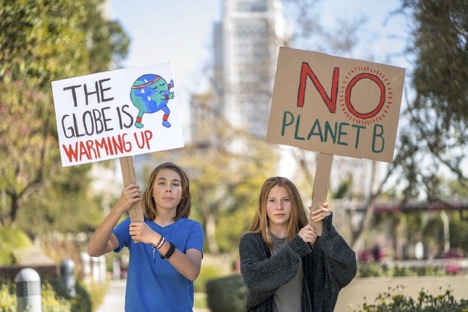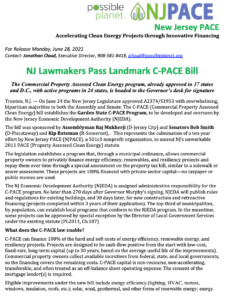Image: Freepik
By Dean Burgess
Sustainable building isn’t just a niche anymore—it’s the future. Whether it’s energy-efficient skyscrapers in major cities or cozy eco-friendly homes in the suburbs, the demand for green construction is growing fast. But launching a business in this space requires more than good intentions. It takes a deep understanding of sustainable materials, regulatory landscapes, and the right strategies to grow. If you’re ready to build a company that not only turns a profit but also benefits the planet, here’s your blueprint.
Find Your Niche in the Green Building Market
Green construction is a broad field, and trying to do everything at once can spread you too thin. Instead of tackling massive commercial projects right away, consider where you can make the most impact. Maybe it’s residential retrofitting, where you upgrade older homes with energy-efficient systems. Or perhaps modular, pre-fabricated green homes are more your style, cutting down on waste while offering affordability. Zeroing in on your niche will help you sharpen your skills, refine your messaging, and stand out in a growing industry.
Understand the Regulations and Certifications
Sustainability isn’t just about using recycled materials and solar panels. If you want to be taken seriously in this space, you need to understand building codes, energy efficiency standards, and green certifications like LEED (Leadership in Energy and Environmental Design) or WELL Building Standard. Each certification has its own requirements, and some states offer tax incentives for meeting them. Getting familiar with these early on will save you headaches down the road and make your projects more appealing to clients who care about long-term sustainability.
Build Relationships with Sustainable Suppliers
Your materials and supply chain will define your business. Sourcing sustainable timber, low-VOC paints, and energy-efficient insulation isn’t just good for the environment—it’s also a major selling point for clients. But finding reliable suppliers that align with your values takes time. Establish relationships with vendors who prioritize ethical sourcing and transparency. And don’t be afraid to negotiate. If you’re buying in bulk or committing to long-term partnerships, you may be able to secure better pricing.
Stay Competitive by Earning a Business Degree
Going back to school for a business degree can be a game-changer when it comes to refining your skills and staying competitive in an ever-evolving market. Whether you earn a degree in marketing, business, communications, or management, you can learn skills that can help your business thrive, from strategic planning to consumer behavior analysis. One of the most valuable benefits is the ability to understand the principles of corporate finance, giving you the knowledge to manage cash flow, investments, and growth strategies with confidence. Plus, with the flexibility of online degree programs, you can continue running your business while furthering your education on your own schedule.
Leverage Technology to Stay Competitive
Green buildings rely on more than just eco-friendly materials. Smart technology plays a huge role in sustainability, from energy-efficient HVAC systems to AI-powered building management software. As you grow, staying ahead of technological advancements will help you offer cutting-edge solutions to your clients. Consider partnering with companies that specialize in smart home integrations or renewable energy innovations. The more you embrace technology, the more competitive your business will be.
Market Your Business with Authenticity
Sustainability sells, but greenwashing—exaggerating eco-friendly claims—can backfire. Your marketing should be rooted in real, measurable impact. Highlight past projects with tangible benefits, such as reduced energy costs or lower carbon footprints. Use social media to showcase time-lapse videos of your builds, behind-the-scenes footage of sustainable materials in use, and testimonials from happy clients. Storytelling is key. People don’t just want to buy a green home; they want to be part of a movement.
Secure Funding Through Grants and Investors
Building green can come with a higher upfront cost, but there are plenty of funding options available. Federal and state governments offer grants and incentives for sustainable construction, while impact investors are eager to support companies that align with environmental goals. Crowdfunding can also be a great way to raise capital while building a community of supporters. Research your options and craft a compelling pitch that not only focuses on profitability but also on the long-term ecological benefits of your business.
Scale Smart by Partnering with Like-Minded Firms
Expanding your business doesn’t have to mean going at it alone. Strategic partnerships can help you scale while staying true to your mission. Consider teaming up with renewable energy providers, sustainability consultants, or architects who specialize in green design. By aligning yourself with experts in complementary fields, you can offer clients a full-service package that makes sustainable building easier and more accessible. Collaboration is key to long-term success.
Starting and growing a green construction business isn’t just about making money—it’s about shaping the future of the built environment. From understanding regulations to securing sustainable suppliers and leveraging smart technology, every decision you make will determine the impact your company has. As demand for eco-friendly buildings continues to rise, those who commit to authenticity, innovation, and collaboration will be the ones leading the way. If you’re ready to build something that lasts, the time to start is now.
Discover how you can contribute to a sustainable future with the Center for Regenerative Community Solutions, where innovative solutions and community engagement drive climate action and regeneration.










